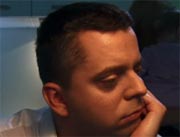
TUESDAY, July 29, 2014 (HealthDay News) — Treating certain adult autism patients with just a single dose of the hormone oxytocin quickly improved their ability to judge facial expressions and emotions, Japanese researchers report.
Known as the “love hormone,” oxytocin has been shown to play a role in emotional bonding between lovers, and between mothers and their children.
In this study, it boosted underperforming neural activity in a key area of the brain that has long been associated with the processing of both empathy and emotion recognition.
The finding has only been observed among male autism patients who are relatively “high-functioning,” meaning that they possess verbal communication skills that exceed those of people with more severe autism.
Yet, study co-author Hidenori Yamasue suggested that even “low-functioning” autism patients might ultimately derive some benefit from oxytocin treatment, because the effect of the hormone is on the ability to interpret nonverbal facial expressions, rather than dialogue.
“Therefore, autistic people with deficits in nonverbal communication and interaction [might] benefit from oxytocin administration,” he noted.
Yamasue, from the department of neuropsychiatry in the Graduate School of Medicine at the University of Tokyo, and his team report the findings online July 29 in the journal Molecular Psychiatry.
Autism involves a range of neurodevelopmental disorders marked by repetitive behaviors and problems with social interaction and communication.
Previous research has indicated that oxytocin might be of use as an autism therapy. One Yale University Child Study Center report, published late last year, suggested the hormone actually enhanced brain function among children with autism.
But, the exact nature of oxytocin’s neurological impact has remained unclear.
To get a better handle on its impact, the Japanese researchers focused on 40 high-functioning men diagnosed with an autism spectrum disorder.
Each received one dose of oxytocin by means of a nasal spray. About 90 minutes later, investigators used high-tech scans to measure the hormone’s impact on activity levels in the brain’s ventro medial prefrontal cortex region.
Brain signaling in this region, they determined, went up following oxytocin treatment.
In turn, treated patients were then presented with a psychological task in which they were instructed to determine whether or not a character in a movie they were shown was a friend or foe. They were asked to make their decision after absorbing a mix of both verbal and nonverbal cues.
The result: the dose of oxytocin did, in fact, translate into an improved ability to interpret such cues accurately.
Yamasue noted that although the impact of oxytocin treatment on brain activity can be seen relatively quickly (within 15 to 120 minutes), “researchers generally believe that effect of single-dose oxytocin is short-term.”
Dr. Andrew Adesman, chief of developmental and behavioral pediatrics at the Cohen Children’s Medical Center of New York in New Hyde Park, cautioned that “it will likely be several years before we have a clearer understanding of whether oxytocin is a safe and effective treatment.”
Adesman said, “Recent studies have suggested that oxytocin can have a favorable effect on the social behaviors of individuals with autism spectrum disorder. [And] this new study suggests that the effects of oxytocin, from an experimental standpoint, may not be as narrow as previously believed,” he acknowledged.
Andrea Roberts, a research associate in the department of social and behavioral sciences at the Harvard School of Public Health in Boston, pointed out that the research on this topic has produced mixed results.
“I think the prior studies show that there is potential for oxytocin to be slightly beneficial to people with [autism spectrum disorder],” she said, “but the evidence for long-term, meaningful levels of effectiveness is unfortunately not yet there.”
More information
Visit the U.S. Centers for Disease Control and Prevention for more about autism.
Copyright © 2026 HealthDay. All rights reserved.

